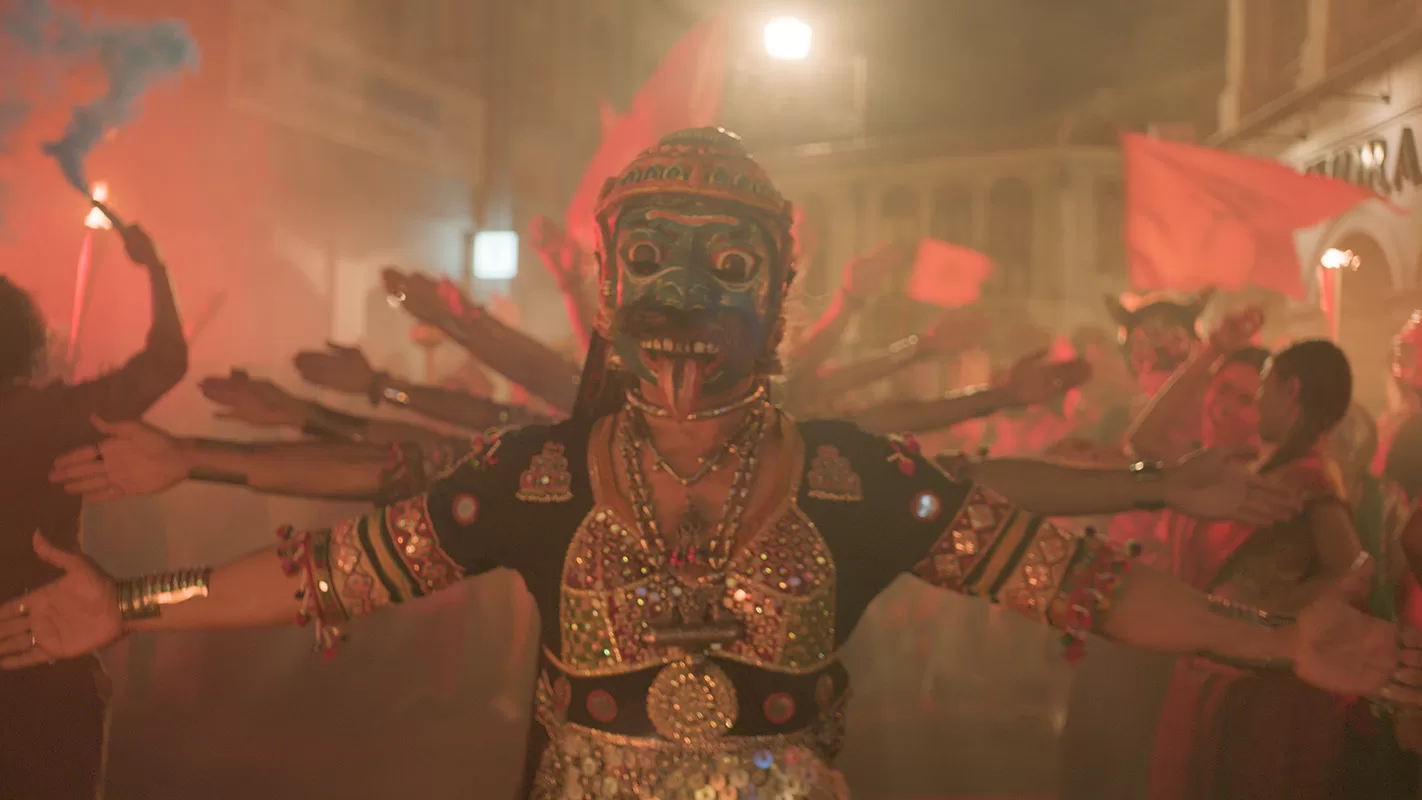In a recent interview, actor Dev Patel discussed the inclusion of India’s third-gender community in his new action film, Monkey Man.
The Slumdog Millionaire actor makes his directorial debut with Monkey Man, an action-revenge film inspired by Indian mythology, which focuses on an anonymous underground fighter and his path to avenge someone he loves.
Underneath all the action are strong socio-political undercurrents, one of which is the conscious inclusion of the Hijras, India’s third gender community, who are figured as a band of outsiders that the lead character, known as ‘kid’, finds solace in during his time of need.

Hijras have existed in the Indian subcontinent since the beginning of its civilization and are said to have been around for nearly 4,000 years. To this day, they make up a distinct social and cultural group including trans, intersex and gender non-conforming people.
In Monkey Man, Kid meets Alpha, played by Vipin Sharma, the leader of this tribe of people who have been marginalized by mainstream society. They take Kid in and, through their guidance and training, together form an army to fight back against the city’s corrupt elite.
As the director and co-writer of the film, Dev Patel confirms that the inclusion of the Hijra community was an intentional one.
Speaking with Variety about his choice, the actor explained, “For me, this is an anthem for the underdogs, the voiceless and the marginalized. Together, they wage this war for the good and the just, and for me, I really wanted to include the hijra community, the third gender in India.”
He continues, “This, at its core, is a revenge film about faith, the beauty of faith. We should be fighting for each other, not against each other.”

Patel hinted at the adversity Hijras face in modern-day India. Today, they still encounter abuse and discrimination, and are unable to access education or jobs, with many forced to enter sex work.
However, this was not always the case. Hijras were largely respected and accepted in ancient India and had distinct roles in ancient religious texts.
Things changed when Britain took direct colonial rule over India in 1858. They introduced Section 377 of the Indian Penal Code, which made anything they deemed as ‘unnatural’ illegal. This extended to the Hijra community, effectively outlawing their existence.
From the creation of this law until it was recently deemed unconstitutional in 2018, it was used as an excuse to abuse, harass, and discriminate against the Hijra community.
Commenting on modern views of gender and sexuality, Patel told Variety, “It’s become rigid over time.”
He continued, “You look at these old carvings in temples in India and the freedom, the sexuality, the philosophy was so ahead of its time. I wanted to dive into that, and make that the lore of the film.”
It’s clear that their intentional inclusion in Monkey Man is a celebratory one, a tale of solidarity and joining together against forces of oppression.
Monkey Man is in cinemas in the UK and Ireland now. You can watch the trailer below.
© 2024 GCN (Gay Community News). All rights reserved.
Support GCN
GCN is a free, vital resource for Ireland’s LGBTQ+ community since 1988.
GCN is a trading name of National LGBT Federation CLG, a registered charity - Charity Number: 20034580.
GCN relies on the generous support of the community and allies to sustain the crucial work that we do. Producing GCN is costly, and, in an industry which has been hugely impacted by rising costs, we need your support to help sustain and grow this vital resource.
Supporting GCN for as little as €1.99 per month will help us continue our work as Ireland’s free, independent LGBTQ+ media.
